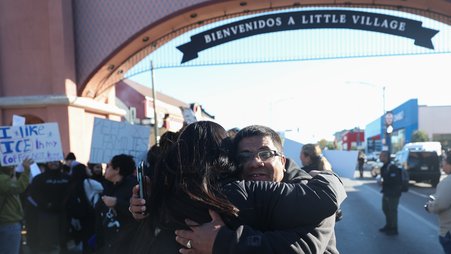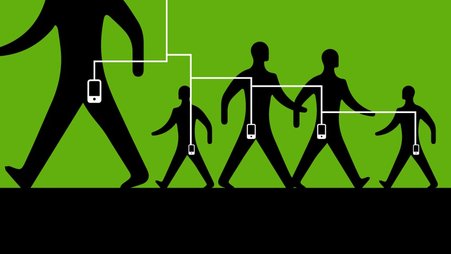At Freedom of the Press Foundation, we believe it’s vital to defend WikiLeaks’ right to gather and publish classified information in the public interest, just as it’s vital to protect the rights of Associated Press and Fox News to do the same. Under the law, the AP, Fox News, and WikiLeaks are no different (a fact that even the government argues). If one falls, the others will not be far behind.
Despite this fact, many journalists and mainstream media organizations purposefully stayed silent when WikiLeaks first came under attack by the Justice Department in early 2011. That disappointing silence left open the possibility that the Justice Department could use those same tactics against others in the future.
And unfortunately now it's clear: virtually every move made by the Justice Department against WikiLeaks has now also been deployed on mainstream US journalists.
Data requests without a warrant
The first public evidence of the WikiLeaks grand jury investigation came from the court orders demanding records from Twitter for three WikiLeaks volunteers, plus the accounts of Manning and Assange, with accompanying gag orders. At first, the 2703(d) orders, as they’re called, were written broadly (and by the looks of it, by someone who didn’t know what Twitter was). Afterwards, Twitter, and then the plaintiff’s attorneys, were able to narrow the scope of the order.
However, there are still many additional court orders for other Internet services that the court refused to unseal. Are they as overbroad as the subpoenas to the AP? It’s hard to tell, since the government has fought to keep them secret in court for years.
Government refusing to notify journalists they’re being spied on
One of the Associated Press’ complaints was directed at the fact that, contrary to Justice Department regulations, DOJ did not notify the AP that they were obtaining their call records. Similarly, Fox News reportedly found out yesterday their reporter was spied on despite the fact that the investigation has been going on for four years.
Three years into the WikiLeaks investigation, it’s important to remember: the only reason we ever found out about the data demands at all is because Twitter challenged the government’s gag order in court. Many companies would not have gone to these lengths. In the AP’s case, for example, Verizon wasn’t even under gag order, but still didn’t notify AP.
But at least the government is not fighting in court to keep other data demands a secret from the AP. In a bid to unseal the WikiLeaks court docket, which almost certainly contains more court orders, the government has successfully beaten back a court challenge from EFF and ACLU to keep it secret. Similarly, in the Fox News case, while the warrant for James Risen's email was made public, the rest of the docket is under seal. Marcy Wheeler speculates that Google could have challeneged the warrant or at least narrowed its scope and we would not know.
Equating journalists and reporting to spies and espionage
In 2010 and 2011, many discounted and differentiated Julian Assange from mainstream journalists by comparing him to a spy or foreign agent, despite the fact that he was just doing what every major US journalism organization does: publishing leaked classified information in the public interest.
Well, the government alleges in Rosen’s case that he acted “much like an intelligence officer would run a clandestine intelligence source” and communicated his “clandestine communications plan.” This is reminiscent of a disturbing House Judiciary hearing last year where the committee’s lead witness compared the New York Times’ David Sanger to a spy, saying he “systematically penetrating the Obama White House as effectively as any foreign agent.”
By that language, the government is arguing journalism is now akin to spying, no matter if its WikiLeaks or the mainstream press.
Potential “conspiracy to commit espionage” charges
In the grand jury investigation into WikiLeaks, the Justice Department reportedly wants to find evidence that Assange “encouraged” Manning to leak the documents or “solicited” information from him, so they can charge Assange with “conspiracy to commit espionage.”
If that sounds familiar, it’s because it’s the same language the government uses while calling Rosen a “co-conspirator” in Stephen Kim’s leak case. The Justice Department and FBI argued in Rosen’s case that there's "probable cause to believe [he] has committed or is committing a violation of [the Espionage Act], as an aider and abettor and/or co-conspirator" by soliciting information from Kim for a story.
Rosen has not been indicted, but that’s cold comfort. Soliciting information and encouraging sources are, as Steve Aftergood remarked yesterday, “routine, daily activities in national security reporting."
As former New York Times general counsel James Goodale put it, a “conspiracy to commit espionage” charge—whether its against Julian Assange, James Rosen, or a New York Times reporter—is better characterized as “conspiracy to commit journalism.”




